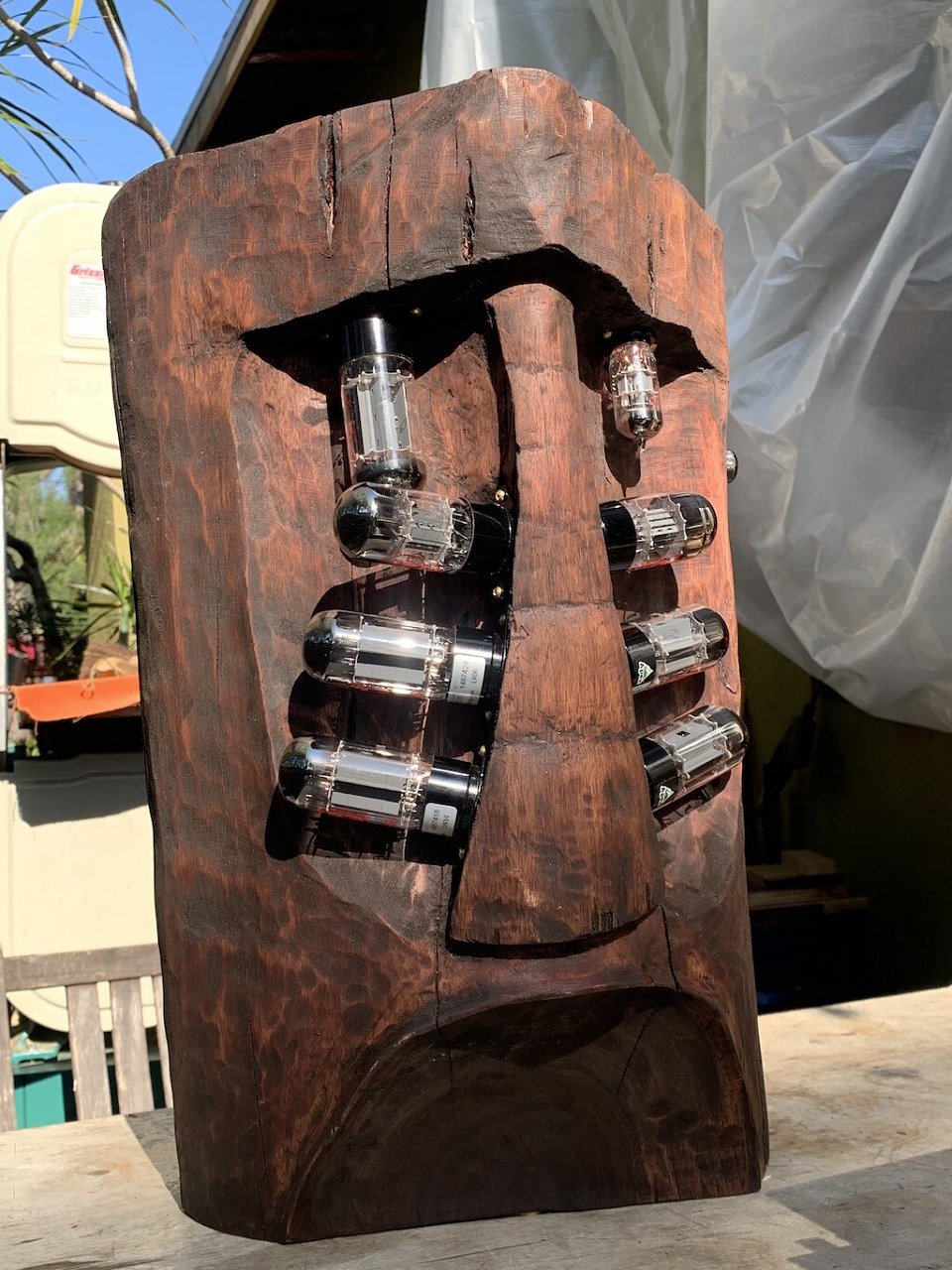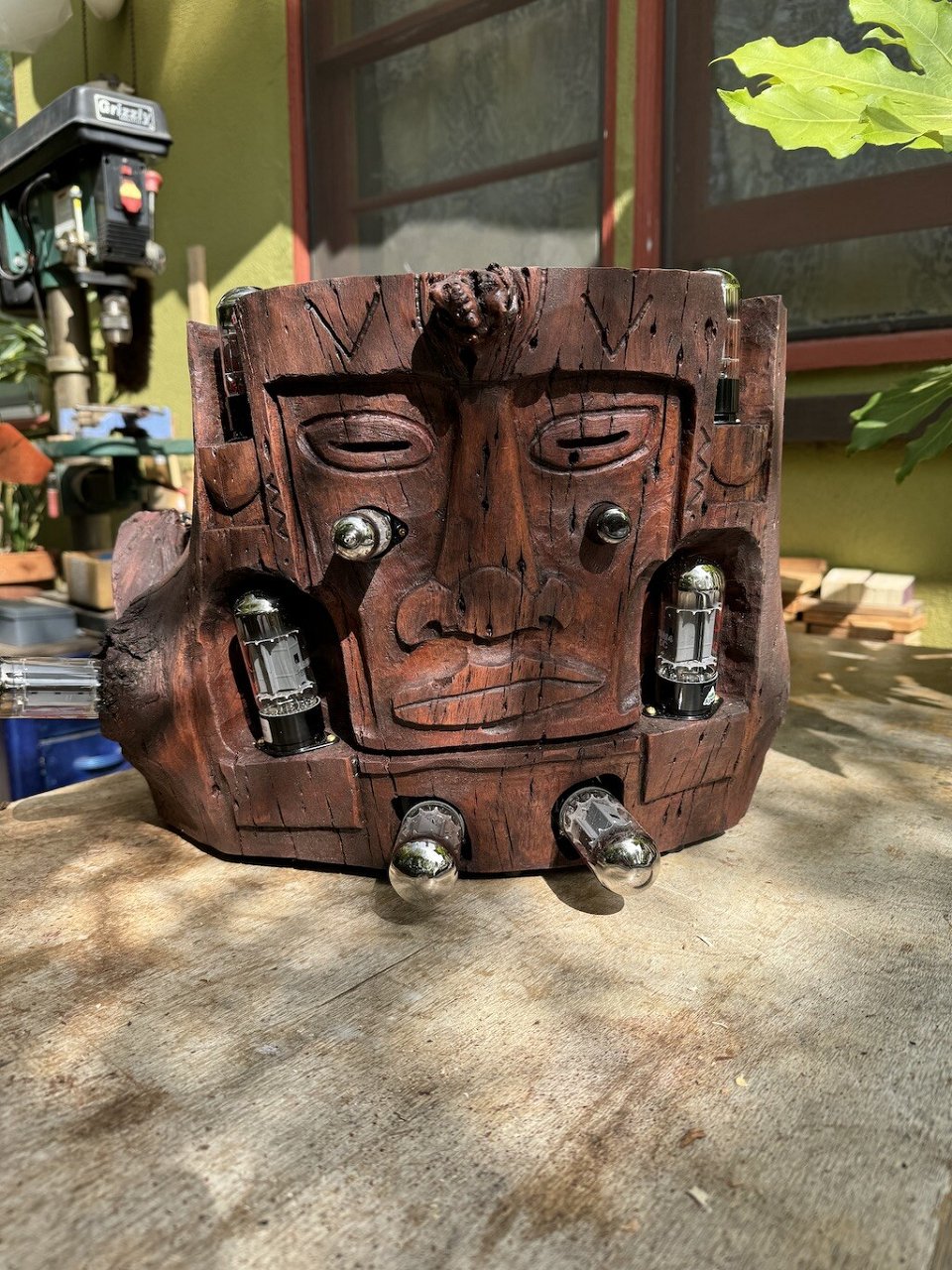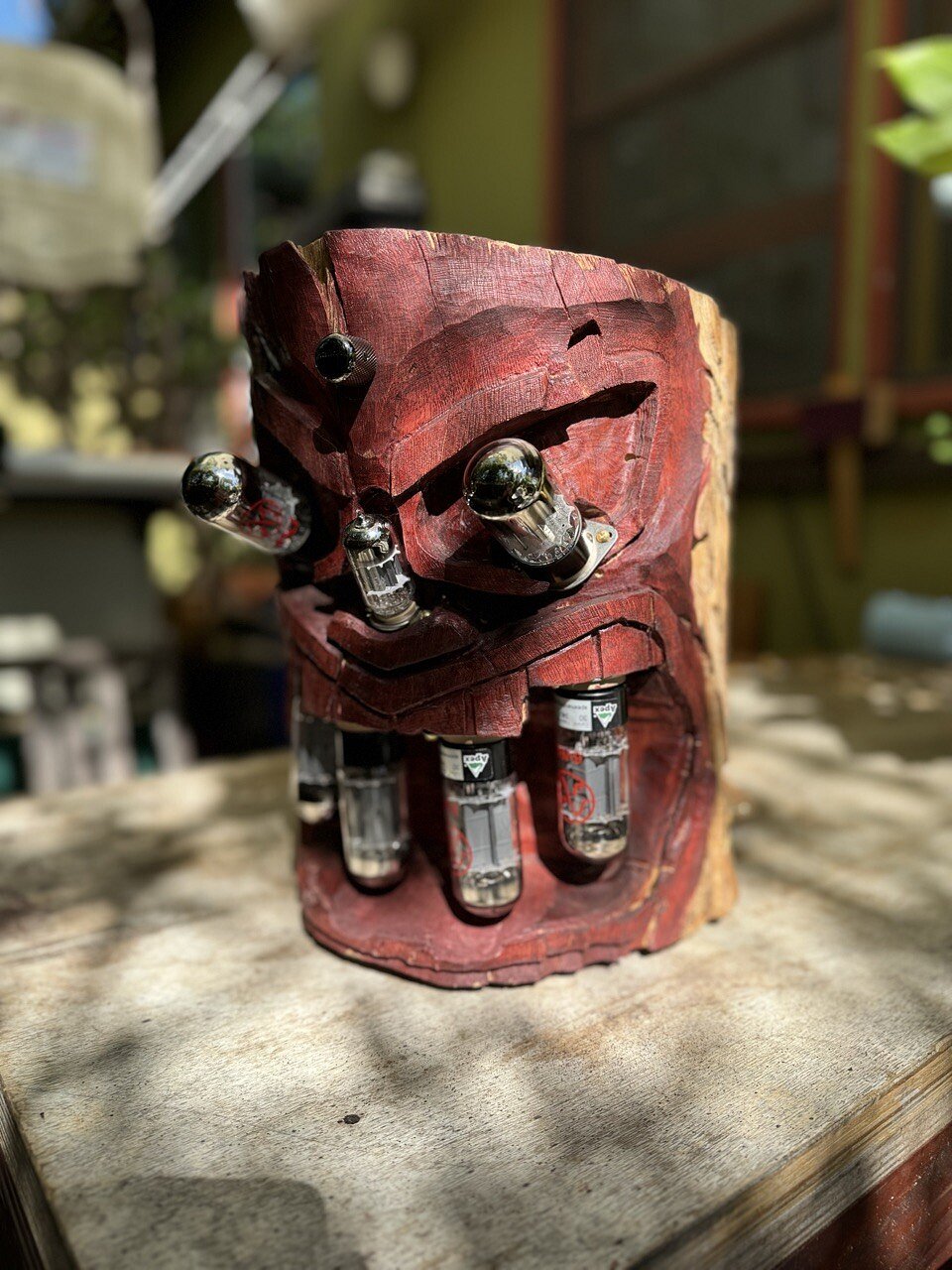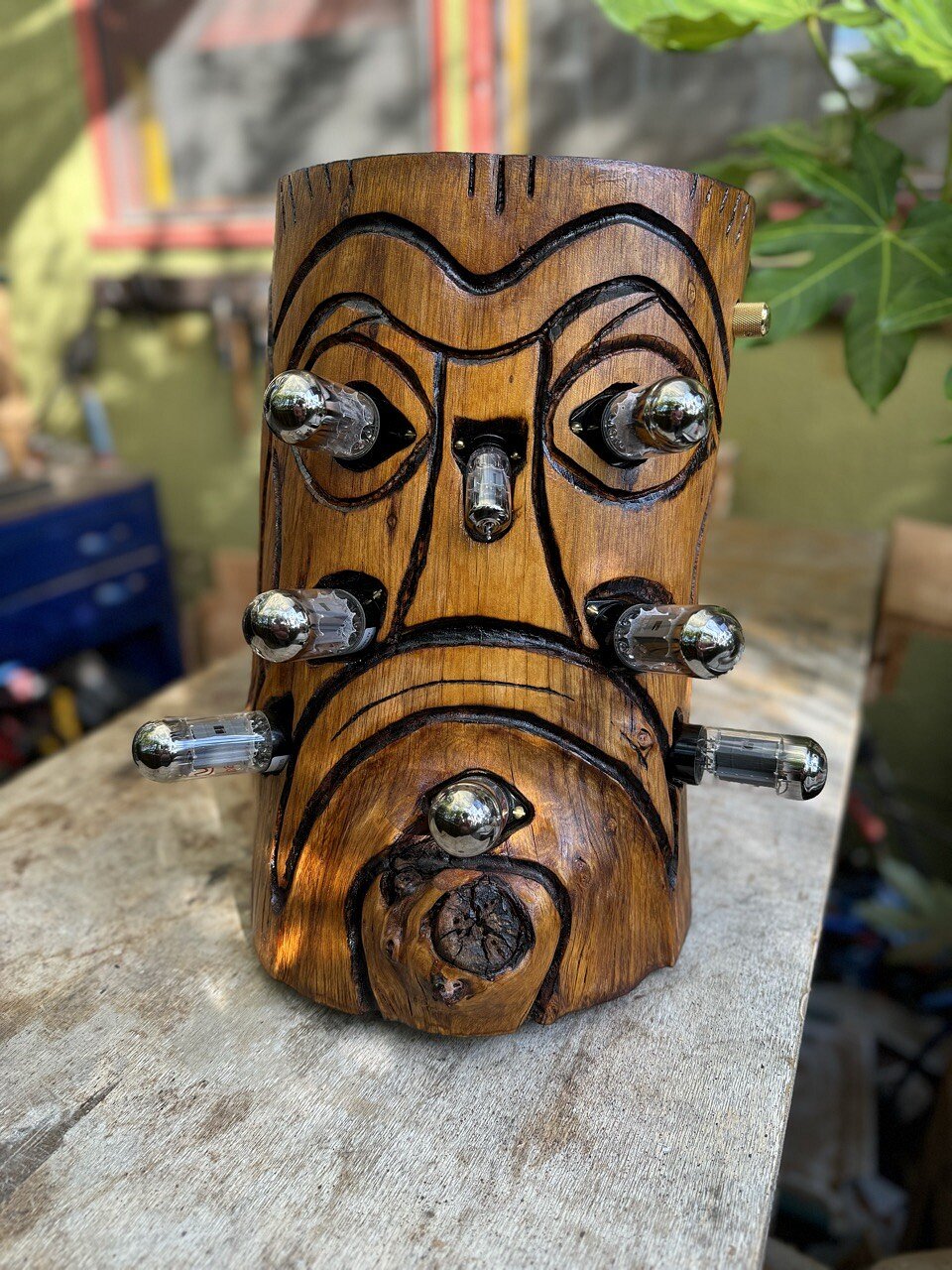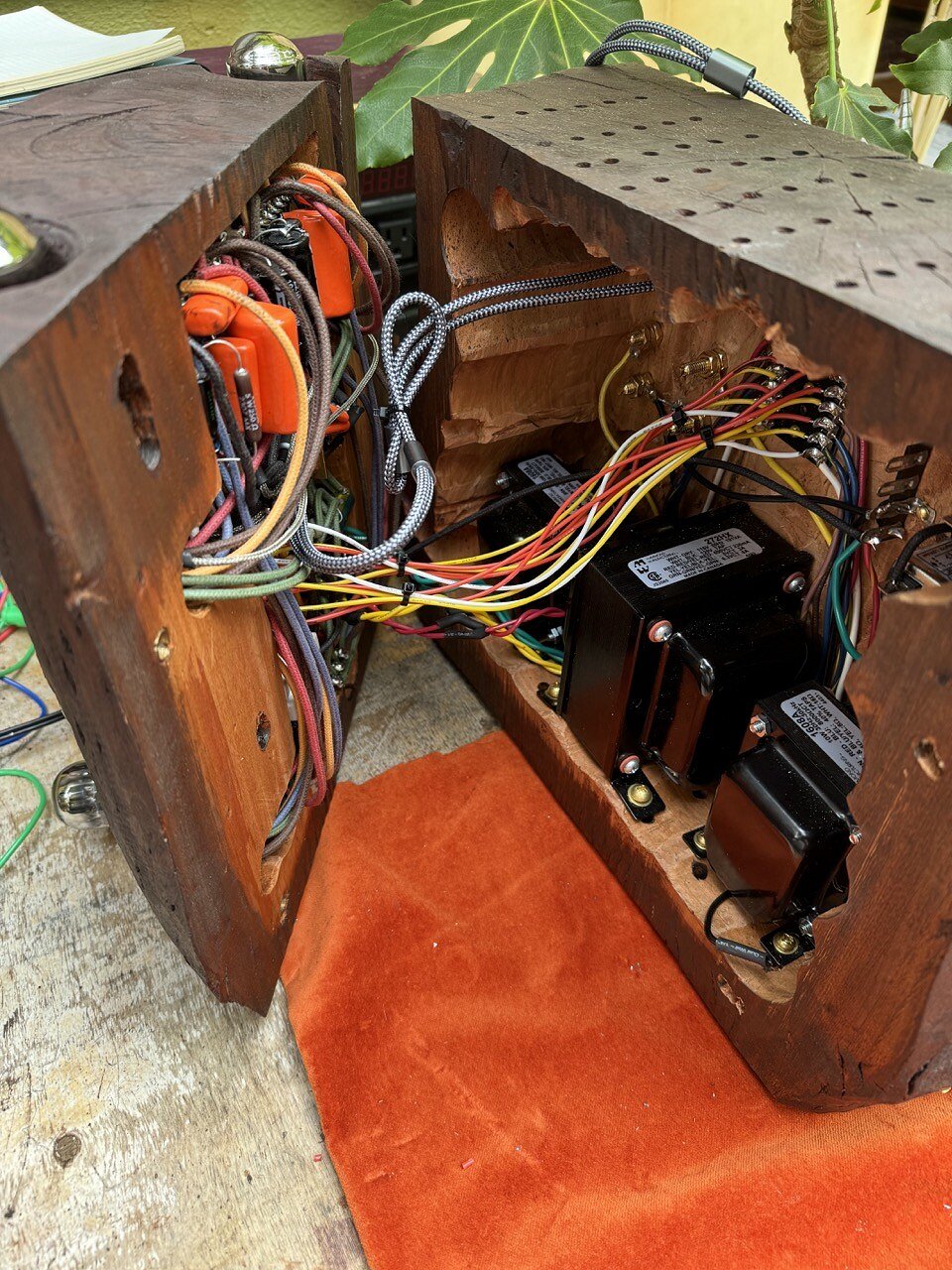Tiki Central / Tiki Gallery
Tiki Tube Amps
Pages: 1 4 replies
|
T
tikitubeamps
Posted
posted
on
Mon, Dec 16, 2024 6:31 PM
hi! I've built a few hifi stereos into carved tiki heads. Each one is 100% handmade and handcarved by me. They work like any other stereo - plug in a record player or other input (RCA jacks), connect some speakers, and listen to music. And the thing is, they listen with you. The amps put out about 10 watts/channel and are all-tube circuitry. They sound great and get really loud. Plus they're fun! Most stereos are just boring boxes and I thought this would be a cool way to make them stand out, and stand forward. People are always hiding that stuff away and I think it's a missed opportunity. If anyone is interested in one of these, or a custom piece, please DM me. Hope you like them! Working on speakers next :) Desmond
|
|
K

KonsTiki
Posted
posted
on
Tue, Dec 17, 2024 12:27 AM
in reply to tikitubeamps
Wow stellar work with carving AND the electrical work! I bet these sound as good as they look! |
|
T

TikiReno
Posted
posted
on
Tue, Dec 17, 2024 9:08 AM
That is truly unique! Well done!! |
|
T
thebambooham
Posted
posted
on
Wed, Dec 18, 2024 1:25 PM
Great idea....but, with that transformer and associated circuits...your looking at trapping a LOT of heat with extended useage. You have enclosed them in wood and provided no vents for that excess heat to leave the components. If it dosent start a fire you will have premature component breakdown and failure of the amplifier....all of the amps you see and that are built have vents for that reason....just FYI!!! |
|
T
tikitubeamps
Posted
posted
on
Wed, Dec 18, 2024 3:28 PM
@thebambooham ah, another engineer! You raise an excellent point. Heat dissipation was a central concern from the start of this project. The amps all have ventilation holes built into the bottom, top, and sometimes the back. The "TIKI" holes, for example, are ventilation. Further, each hole has a slight chamfer on the outside to create a Venturi effect, drawing cool air in more rapidly. The yellowish tiki amp (Isaac) is built as a chimney, that is, it's a hollow cylinder with open top and bottom to allow hot air to convection upwards. I say "open top and bottom" but there are grilles to keep fingers out of the circuitry. The transformers do generate some heat though, as do the tubes themselves. The wood gets warm to the touch but not hot. All the internal components are rated to 185 degrees F. I've run the amps for upwards of 8 hours straight with no issues...there's been no change in sound quality nor drift in component values. They've actually performed better than I expected. |
Pages: 1 4 replies

